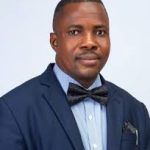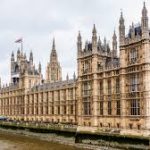
By ‘Tunji Ajibade
The governor of Kaduna State, Malam Nasir El-Rufai, has said the annual budget of the state has always been used as a means of signalling the change that his administration wanted to bring to the people of the state. The governor stated this at the time he presented the draft estimate of the 2022 Appropriation bill to the state legislators.
According to him, “From June 2015, we have deployed the annual budget as a fundamental policy tool for signalling change and in implementing change.”
In doing this the state governor noted that every step taken under his administration as reflected in the annual budget were based on his party’s manifesto and it was around it his government fashioned its agenda.
“In the over six years that we have exercised responsibility for this state, we have kept faith with our manifesto and fashioned our governance agenda around it,” he explained. “Through various initiatives, we have expressed our commitment to promote equality of opportunity, accelerate human capital development, attain fiscal viability, and reduce inequality.”
He further stated that many of the programmes of his government were hinged on these and core to it were the steps taken to modernise the state and make it appeal to all.
“In June 2019, shortly after we commenced our second term,” El-Rufai said, “we launched the Urban Renewal Programme to modernise our three major cities. This is an unprecedented investment in urban infrastructure that is changing Kaduna, Kafanchan and Zaria. We have built, upgraded and expanded infrastructure in these cities as part of a coordinated effort to improve the economic competitiveness of our state and increase its appeal as a place to live, work and rest.”
The governor also noted that his administration was able to generate more revenues without hiking taxes and through this it embarked on major reforms in different sectors of the economy. “Without hiking tax rates,” he said, “Kaduna State has become a top five state for internally generated revenue in Nigeria, collecting N50.7bn in taxes and levies in 2020. This is almost four times the N13bn that the state collected as IGR in 2015. We have increased school enrolment, made education free and compulsory for all children till they complete senior secondary school and launched a multicampus system for all our state-owned tertiary institutions. We have reformed the scholarship system to reward merit and support the needy. We are implementing a more sustainable funding arrangement for tertiary education based on a partnership between the government, parents and students.”
El-Rufai however stated that all the reforms were predicated and made possible by the laws which the state legislators passed, a situation which he said proved that the lawmakers were partners in the vision as well as the progress that his administration had made thus far. He noted that in support of the efforts of his government to bring good governance to the people of Kaduna State, the legislators had passed over 100 bills which contributed significantly to the achievements recorded by his government.
According to El-Rufai, “I wish to acknowledge and appreciate once again the productive partnership the Kaduna State House of Assembly and the Executive Branch have built in the service of our people since 2015. Mr. Speaker, Right Honourable members, it is with your kind support that we have the necessary legislation to anchor our governance innovations. Enacting the Kaduna State Independent Electoral Commission (KADSIECOM) law has enabled our state to introduce a revolution in Nigeria by adopting electronic voting for the local government elections of September 2021 and May 2018. This is among the over 100 new laws enacted since 2015 to institutionalise reforms in public finances, procurement, taxation, child welfare and protection, investment promotion, scholarships, youth capacity building and residency, among others. The new laws also created a geographic information service and an internal revenue service.”
Explaining the philosophy behind the actions of his government, the governor stated that his “governance agenda is not based on a whim or some fancy theorising. It is rooted in deeply held values and rigorous assessment of what is required to build a good society, to empower our people and overcome the legacy of decades of neglect governance norms and failures in delivering public goods. Expressed in the Putting People First slogan, our governance agenda is anchored on the Restoration Programme, the Kaduna State specific iteration of the APC manifesto.”
He further explained that, “In 2015, we committed ourselves to develop human capital by investing in education, healthcare and social welfare; institute a good governance system that is founded on a competent and responsive public service; foster security; maintain, rebuild and expand Infrastructure (including water supply, electricity and road networks) to accelerate economic growth that will create jobs, jobs and more jobs; promote agriculture and food security and reform land administration as a basis for wealth creation and capital formation, while preserving and enhancing environmental management.”









